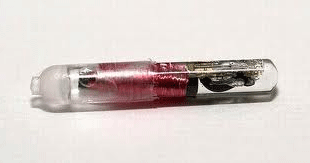You may not know what RFID stands for, but you’re probably using the technology on a daily basis. RFID (that is, radio frequency identification) is in passports, in electronic toll-collection tags, in credit cards, metrocards, library books and car keys. Like conventional bar codes, RFID chips store and relay information, and allow for the identification of commercial products — and, now, of house pets and people too. Human “tagging” was approved by the Food and Drug Administration in 2004 to facilitate retrieval of private medical records, but the procedure has had few takers. It’s still purely voluntary and last week, California Gov. Schwarzenegger sought to keep it that way, signing a bill that makes it illegal for employers to force workers to have RFID devices implanted as a means for receiving paychecks or government benefits.
Read more: at Time.com

